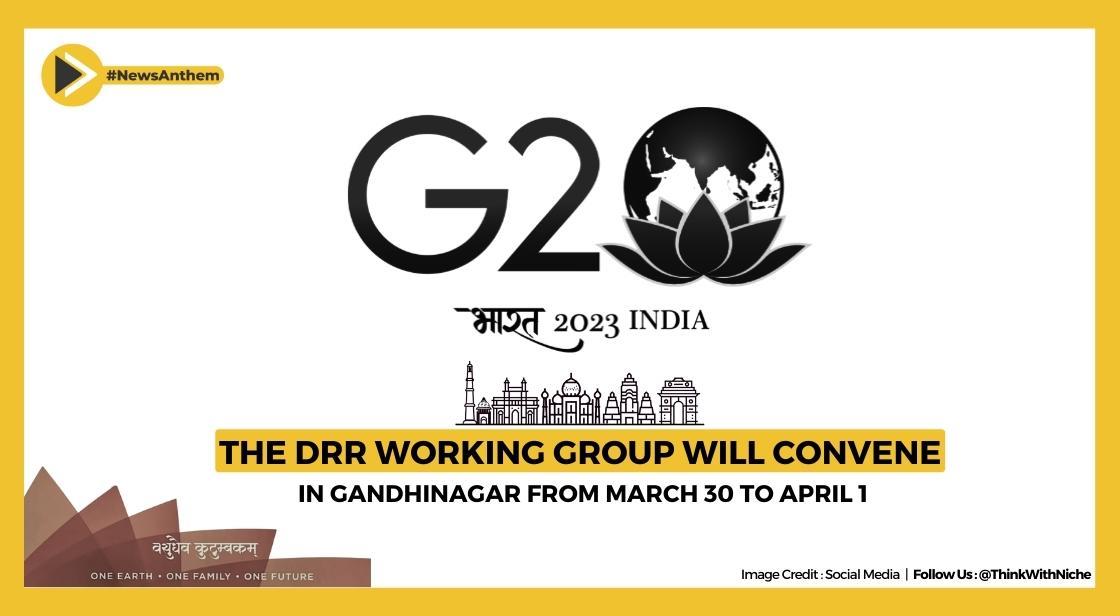The DRR working group will convene in Gandhinagar from March 30 to April 1

News Synopsis
Gujarat will hold the first meeting of the G20's recently created Disaster Risk Reduction (DRR) working group, which was established under India's Presidency.
The DRR Working Group Meeting is scheduled to take place in Gandhinagar from March 30 to April 1.
Member Secretary Kamal Kishore of the National Disaster Management Authority (NDMA) stated, "There are certain gaps in the targets set forth in the Sendai Framework for Disaster Risk Reduction, which are being seen around the world. 2015 had seen the approval of the Sendai Framework for Disaster Risk Reduction by 187 nations worldwide."
The plan, which runs from 2015 to 2030, "has set targets for lowering disaster-related mortality, reducing the number of people impacted by disasters, reducing economic losses, and reducing infrastructure losses," he continued.
"More than half of the Sendai Framework's time has passed in each of them, requiring a review of the progress and the identification of any gaps. So, the Indian Presidency wanted to instill a fresh sense of urgency in efforts to mitigate disaster risk so that people worldwide, not only in the 20 nations, are safer from disasters. This was done under the leadership and direction of the honorable Prime Minister Narendra Modi. They can protect not only their lives but also their way of life, "Kamal, the NDMA Secretary, added more.
When asked what the most important topics were under DRR under the president, Kamal replied, "They have identified certain top priorities for lowering catastrophe risk. The first one is to concentrate on making sure that everyone has access to catastrophe early warnings across the world. The second is a resilient infrastructure that really can endure harsh weather, climatic changes, and other geophysical events like earthquakes and tsunamis, and is absolutely secure from these events not just now but also in the decades to come."
"How we get funds for disaster risk reduction is the third priority. And finally, how might ecosystem-based methods be used to minimize disaster risks after the disaster? "Added he.
NDMA Secretary Kamal said, "It's really a priority for all of us at home as well as globally," when asked where he saw India in the next years in terms of high-quality infrastructure as well as its contribution to advancing the same in G20 countries.
"We want to guarantee that every piece of infrastructure we create is founded on the Most Recent Findings in Science and Technology and is prepared to withstand extreme events like cyclones, floods, earthquakes, and tsunamis, both now and in the future," he continued.
Speaking of the main information sources for the working group meeting, Kamal stated, "In this effort, they have a number of expert partners. One is, of course, the Asian Development Bank, the UN Office for Disaster Risk Reduction, the UN Development Program, the Coalition for Disaster Resilient Infrastructure, and several other Technical Institutes in India."
The meeting is expected to attract more than 100 delegates, including representatives from all 20 G-20 Nations, Nine Invited Nations, and Eight International Organizations.
You May Like









